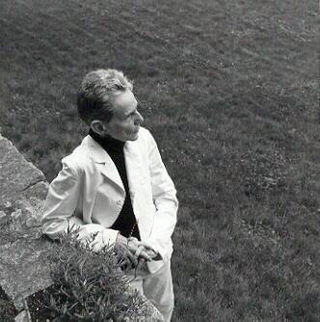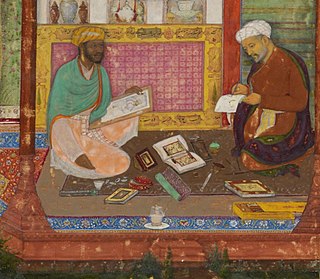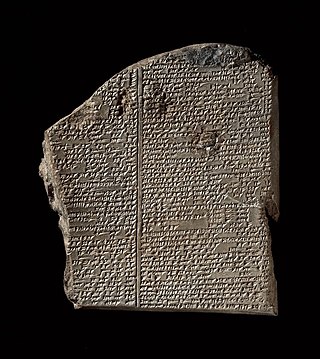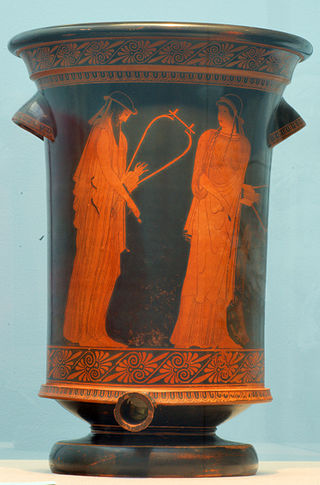
Occasional poetry is poetry composed for a particular occasion. In the history of literature, it is often studied in connection with orality, performance, and patronage.

Occasional poetry is poetry composed for a particular occasion. In the history of literature, it is often studied in connection with orality, performance, and patronage.
As a term of literary criticism, "occasional poetry" describes the work's purpose and the poet's relation to subject matter. It is not a genre, but several genres originate as occasional poetry, including epithalamia (wedding songs), dirges or funerary poems, paeans, and victory odes. Occasional poems may also be composed exclusive of or within any given set of genre conventions to commemorate single events or anniversaries, such as birthdays, foundings, or dedications.
Occasional poetry is often lyric because it originates as performance, in antiquity and into the 16th century even with musical accompaniment; at the same time, because performance implies an audience, its communal or public nature can place it in contrast with the intimacy or personal expression of emotion often associated with the term "lyric". [1]
Occasional poetry was a significant and even characteristic form of expression in ancient Greek and Roman culture, and has continued to play a prominent if sometimes aesthetically debased role throughout Western literature. Poets whose body of work features occasional poetry that stands among their highest literary achievements include Pindar, Horace, Ronsard, Jonson, Dryden, Milton, Goethe, Yeats, and Mallarmé. [2] The occasional poem (French pièce d'occasion, German Gelegenheitsgedichte) is also important in Persian, Arabic, Chinese, and Japanese literature, and its ubiquity among virtually all world literatures suggests the centrality of occasional poetry in the origin and development of poetry as an art form.
Goethe declared that "Occasional Poetry is the highest kind," [3] and Hegel gave it a central place in the philosophical examination of how poetry interacts with life:
Poetry's living connection with the real world and its occurrences in public and private affairs is revealed most amply in the so-called pièces d'occasion. If this description were given a wider sense, we could use it as a name for nearly all poetic works: but if we take it in the proper and narrower sense we have to restrict it to productions owing their origin to some single present event and expressly devoted to its exaltation, embellishment, commemoration, etc. But by such entanglement with life poetry seems again to fall into a position of dependence, and for this reason it has often been proposed to assign the whole sphere of pièces d'occasion an inferior value although to some extent, especially in lyric poetry, the most famous works belong to this class." [4]
A high-profile example of a 21st-century occasional poem is Elizabeth Alexander's "Praise Song for the Day," written for Barack Obama's 2009 US presidential inauguration, and read by the poet during the event to a television audience of around 38 million. [5]

Poetry, also called verse, is a form of literature that uses aesthetic and often rhythmic qualities of language − such as phonaesthetics, sound symbolism, and metre − to evoke meanings in addition to, or in place of, a prosaic ostensible meaning. A poem is a literary composition, written by a poet, using this principle.

Literary criticism is the study, a genre of arts criticism, evaluation, and interpretation of literature. Modern literary criticism is often influenced by literary theory, which is the philosophical discussion of literature's goals and methods. Though the two activities are closely related, literary critics are not always, and have not always been, theorists.

Modern lyric poetry is a formal type of poetry which expresses personal emotions or feelings, typically spoken in the first person.
Prose poetry is poetry written in prose form instead of verse form, while preserving poetic qualities such as heightened imagery, parataxis, and emotional effects.

Performance poetry is a broad term, encompassing a variety of styles and genres. In brief, it is poetry that is specifically composed for or during a performance before an audience. During the 1980s, the term came into popular usage to describe poetry written or composed for performance rather than print distribution, mostly open to improvisation.

Classical Chinese poetry is traditional Chinese poetry written in Classical Chinese and typified by certain traditional forms, or modes; traditional genres; and connections with particular historical periods, such as the poetry of the Tang dynasty. The existence of classical Chinese poetry is documented at least as early as the publication of the Classic of Poetry (Shijing). Various combinations of forms and genres have developed over the ages. Many or most of these poetic forms were developed by the end of the Tang dynasty, in 907 CE.

Susan Howe is an American poet, scholar, essayist, and critic, who has been closely associated with the Language poets, among other poetry movements. Her work is often classified as Postmodern because it expands traditional notions of genre. Many of Howe's books are layered with historical, mythical, and other references, often presented in an unorthodox format. Her work contains lyrical echoes of sound, and yet is not pinned down by a consistent metrical pattern or a conventional poetic rhyme scheme.
Envoi or envoy in poetry is used to describe:
French poetry is a category of French literature. It may include Francophone poetry composed outside France and poetry written in other languages of France.
Haroldo Eurico Browne de Campos was a Brazilian poet, critic, professor and translator. He is widely regarded as one of the most important figures in Brazilian literature since 1950.

In Islamic cultures of the Middle East, North Africa, Sicily and South Asia, a Diwan is a collection of poems by one author, usually excluding his or her long poems (mathnawī).

Poetry as an oral art form likely predates written text. The earliest poetry is believed to have been recited or sung, employed as a way of remembering oral history, genealogy, and law. Poetry is often closely related to musical traditions, and the earliest poetry exists in the form of hymns, and other types of song such as chants. As such poetry is a verbal art. Many of the poems surviving from the ancient world are recorded prayers, or stories about religious subject matter, but they also include historical accounts, instructions for everyday activities, love songs, and fiction.

— Opening lines of Rudyard Kipling's White Man's Burden, first published this year

Mohammed Bennis is a Moroccan poet and one of the most prominent writers of modern Arabic poetry. Since the 1970s, he has enjoyed a particular status within Arab culture. Muhsin J al-Musawi states that "Bennis’ articulations tend to validate his poetry in the first place, to encapsulate the overlapping and contestation of genres in a dialectic, that takes into account power politics whose tropes are special. As a discursive threshold between Arab East and the Moroccan West, tradition and modernity, and also a site of contestation and configuration, Muhammad Bennis' self-justifications may reveal another poetic predilection, too."
Nationality words link to articles with information on the nation's poetry or literature.
The long poem is a literary genre including all poetry of considerable length. Though the definition of a long poem is vague and broad, the genre includes some of the most important poetry ever written.

Iambus or iambic poetry was a genre of ancient Greek poetry that included but was not restricted to the iambic meter and whose origins modern scholars have traced to the cults of Demeter and Dionysus. The genre featured insulting and obscene language and sometimes it is referred to as "blame poetry". For Alexandrian editors, however, iambus signified any poetry of an informal kind that was intended to entertain, and it seems to have been performed on similar occasions as elegy even though lacking elegy's decorum. The Archaic Greek poets Archilochus, Semonides and Hipponax were among the most famous of its early exponents. The Alexandrian poet Callimachus composed "iambic" poems against contemporary scholars, which were collected in an edition of about a thousand lines, of which fragments of thirteen poems survive. He in turn influenced Roman poets such as Catullus, who composed satirical epigrams that popularized Hipponax's choliamb. Horace's Epodes on the other hand were mainly imitations of Archilochus and, as with the Greek poet, his invectives took the forms both of private revenge and denunciation of social offenders.

Poésies is an 1887 poetry collection by the French writer Stéphane Mallarmé.

Greek lyric is the body of lyric poetry written in dialects of Ancient Greek. It is primarily associated with the early 7th to the early 5th centuries BC, sometimes called the "Lyric Age of Greece", but continued to be written into the Hellenistic and Imperial periods.

Romanticism was an artistic, literary, and intellectual movement that originated in Europe toward the end of the 18th century. Scholars regard the publishing of William Wordsworth's and Samuel Coleridge's Lyrical Ballads in 1798 as probably the beginning of the movement, and the crowning of Queen Victoria in 1837 as its end. Romanticism arrived in other parts of the English-speaking world later; in the United States, it arrived around 1820.